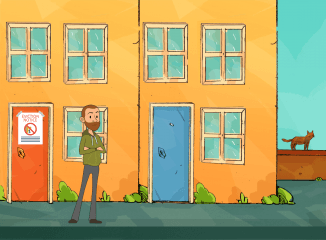Getting your house ready for sale during lockdown: NAEA Propertmark’s tips
Despite the property market coming to a halt due to the outbreak of COVID-19, there are still ways to get ready to hit the ground running once lockdown restrictions are lifted. NAEA Propertymark has shared their tips:
Get your paperwork ready
There is a lot of work needed to get your house sale ready and in many cases finding all the relevant paperwork can take several weeks so now is the time to begin gathering it. This also means that if something is missing, you can begin to take steps to get the replacement paperwork. During the course of your sale, you will be asked for evidence such as:
- TA6/Property information questionnaire
- A copy of the lease if the property is leasehold
- Documentation related to the freehold if you own the freehold
- FENSA certificates for replacement windows
- Your Energy Performance Certificate (EPC)
- Relevant building restrictions
- Building regulation certificate when alterations have taken place
- A Gas Safety certificate for a new boiler
It might seem like a lot but preparing all this paperwork will ensure that you can get your property transaction off the ground quickly and smoothly.
Get your finances in order
It’s a difficult time for many people financially right now, but if you’re thinking of taking out a mortgage later this year, now is the time to take a look at your finances. Make a note of your household bills and expenses and see if there is anywhere you could make savings. Work out if there’s anything you have had to do without during lockdown which you can cut out of your spending for the long term. It’s also a good idea to check everything if up to date on your credit report and see if any errors or out-of-date information have impacted your score.
Calculate the cost
With any property move, there are costs involved from removal vans to storage and depending on how much furniture and belongings you have, the costs can really vary. Usually the biggest cost will come from hiring a removal company; however, vehicle hire, storage, pets and postal redirection can all add up. While you have the time, explore the different options out there for you to find one that best suits your budget.
Be transparent
There are certain factors that you should be sure to make clear. This includes covenants on the deed, land boundaries on the property, potential issues with the property or surrounding area and any other information, good or bad, that you believe potential buyers need to know.
NAEA Propertymark’s Property Information Questionnaire, includes information you will need to disclose and gather to make this process much quicker and easier.
Spruce up your current home
First impressions count but making small tweaks to your home can make a huge difference. Use this extra time to spruce up your garden, tidy up any cupboards, declutter worktops and dig out your tools to complete those unfinished DIY projects. All of this will help when it comes to showing your house to potential buyers. You can even do virtual viewings while social distancing restrictions remain in place so don’t delay making your house look as good as it can.
Mark Hayward, Chief Executive, NAEA Propertymark comments: “While being unable to sell your house at the moment may be frustrating, there is still lots you can be doing to start the process and make sure you’re prepared for when lockdown restrictions are relaxed.
“Gathering all this paperwork may seem daunting, but it will make selling your property a lot easier and help ensure a speedy process. Our Property Information Questionnaire is a great starting point and will take you through all the information required succinctly and simply.”






